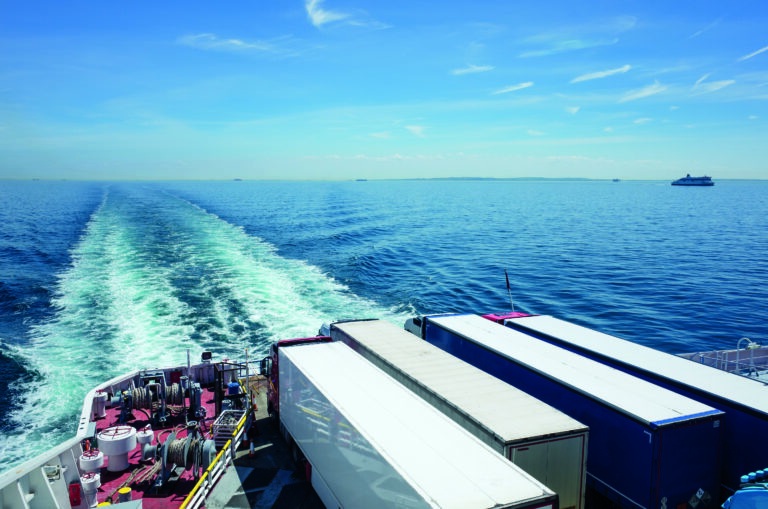The disruption to commercial shipping through the Suez Canal is another unwelcome hit to global trade. Michael Barker examines the potential impact for farmers
As another year dawns, another threat to global trade pushes further uncertainty and cost into the food supply chain. Such has been the 2020s – the decade of volatility and crisis management.
Following the Covid pandemic and the war in Ukraine, in recent weeks Yemen-based Houthi militants have begun attacking US warships and commercial vessels in the Red Sea and Gulf of Aden, leading major shipping lines to divert ships around the Cape of Good Hope. Logistics giant Maersk, to cite one example, said it was diverting all container vessels for the foreseeable future, with increased costs (presented as Transit Disruption Surcharges) for customers as a result.
John Giles, divisional director at agricultural consultancy Promar International, observes that the current crisis is just the latest in a series of hits to the global shipping trade over the last few years, but it comes at a particularly unwelcome time given shipping rates were finally coming down after soaring post-Covid. “The Suez Canal is a major gateway linking world markets and you get a situation where a number of the leading shipping companies have said they are going to suspend services through the Red Sea and up through the canal,” he says. “I believe the decision to do that is quite straightforward if they can’t guarantee the safety of their ships or crew, but the decision to restart the service might be more complicated and take a bit longer.”
Giles believes the situation could bring longer-term disruption to shipping through that part of the world, with sea routes having to be recalibrated and knock-on effects for any agricultural commodities passing through. “We live in a VUCA world – volatile, uncertain, complex, ambiguous – and this is yet more disruption,” he continues. “Time and cost will be added to shipments having to take a longer route. For anybody shipping products from around the world, be it poultry or anything else, it makes a difficult job more difficult. Whether it’s fertiliser, or chicken from Thailand, anything coming through the Suez Canal will be affected, and all of this threatens food security to a greater or lesser extent.”
The impact is already being seen in the organic poultry sector, which is finding organically certified soya expeller – a high-protein, high-fat ingredient in organic poultry feed – in short supply in the UK. Sourced from China and typically brought to the UK via the Suez Canal, reroutings have brought delays of two to three weeks.
The Agricultural Industries Confederation, together with the Soil Association, Organic Farmers & Growers and the Irish Organic Association, have lobbied Defra to grant derogations on a mill-by-mill basis to feed businesses affected.
Grocery industry analyst IGD believes there is unlikely to be significant short-term damage to the UK’s food security overall, given two-thirds of all food eaten is sourced domestically and the majority of the rest comes from or via the EU. Importers that are affected have already begun adapting their supply chain arrangements in light of the Middle East conflict, IGD notes.
However, given that a large part of global container and energy trade goes via the Suez Canal, longer journey times or increased risk would ultimately create an inflationary effect that would filter through to consumers. “Food businesses in the UK would certainly be exposed to higher costs for energy, chemicals and packaging, especially primary producers,” IGD warns.
After two years of debilitating production cost increases, any further hikes in input costs for poultry producers would be highly unwelcome. With around 12% of global trade passing through the Suez Canal, a swift return to normal shipping patterns can’t come soon enough.


